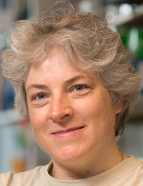Research at the MRC Mitochondrial Biology Unit
Research at the Medical Research Council - Mitochondrial Biology Unit (MBU) at the University of Cambridge aims to understand the fundamental biochemical and biological processes taking place in mitochondria, and the roles and integration of mitochondria within the cell. We aim to learn about the involvement of mitochondria and mitochondrial dysfunction in human diseases, and to exploit our understanding and knowledge to develop new therapies to treat them.
There are nine Principal Investigators in the Unit, each leading an independent research group that focusses on a particular area of the Unit’s research (described individually elsewhere on this website). The Unit’s environment encourages cross-disciplinary interactions between the groups, who also collaborate extensively with other leading research groups on the local, national and international stage.
The MBU occupies spacious modern laboratories equipped with state-of-the-art instrumentation, with access to further large-scale facilities as required for our research. We share the Keith Peters Building with the Cambridge Institute for Medical Research (CIMR), which like the MBU is part of the University of Cambridge School of Clinical Medicine, and this proximity has helped us to develop excellent relations with both CIMR's clinical and non-clinical scientists, and with other clinical scientists in the School of Clinical Medicine. The building is part of the Cambridge Biomedical Campus, which is expanding rapidly into the largest Biomedical campus in Europe; we are thus situated in a prime location for our interactions with research scientists and clinicians in the School of Clinical Medicine and other nearby world-renowned institutes.
As a University MRC Unit, we are supported by core funding from the Medical Research Council and closely integrated into the academic community of the University of Cambridge. Our members are all University employees and I hold the positions of Professor of Biological Chemistry at the University and Fellow of Corpus Christi College. Other members of our Unit are also College Fellows and participate in teaching undergraduate students. However, our most important relationship with the student body at the University is in supervising the research of our post-graduate students. The Unit has a substantial graduate student body of around 30 members, who are enrolled as PhD (or occasionally as MPhil) students at the University. We are committed to mentoring and supervising our students to the highest possible standards and their success is very important to us. Our students organise an active social and academic calendar, including joint events with student societies in other Cambridge departments and institutes.
Although scientific endeavour and success in research are the central reasons why we enjoy working at the MRC Mitochondrial Biology Unit, the beauty of the city and the University of Cambridge, and the cultural and social activities of the University, provide additional important dimensions. All our post-graduate students are members of Cambridge Colleges, and many Colleges now provide opportunities for post-doctoral scientists to become associated with them also. The Colleges themselves provide social contacts and routes into cultural activities, for example into music and drama. So, if you are eligible to become a post-graduate student, or if you want to pursue post-doctoral research in an exciting field of biology, at the cutting edge of a new and rapidly developing area of biomedical research, then please explore our website, and do get into contact with us. And for those of you with a more general interest in the mitochondrion and its role in human disease, whether you are a member of the public, a school or college student, or a university undergraduate, we hope that you will find our website helpful and informative, and gain enjoyment and benefit from knowing more about both us and our science.
Thank you for visiting our website.
Judy Hirst


